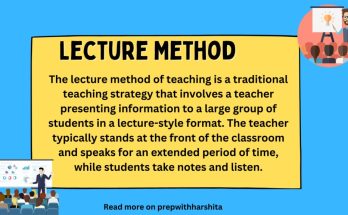Feeling disconnected from a particular subject is a common and often frustrating experience, whether you’re a student in a classroom or a professional grappling with a new, required field of study. The lack of genuine interest can make the learning process feel like a chore, turning every chapter, lecture, or assignment into a battle of will. This disengagement often leads to a cycle of procrastination, subpar performance, and a growing sense of dread. However, simply enduring a subject you don’t like is not a sustainable or effective strategy. Instead, the real challenge lies in finding a way to not just get through it, but to derive some value and even a measure of success from the experience. The key is to stop trying to force yourself to feel passion for the subject and instead, to strategically and creatively find ways to make the learning process more manageable, relevant, and even interesting on its own terms.
The first step is to shift your perspective from passive acceptance to active problem-solving. Instead of seeing the subject as a monolithic block of uninteresting information, try to identify the specific reasons for your dislike. Is it the content itself? The teaching style? The sheer difficulty? For many, the issue isn’t the subject, but a foundational gap in knowledge that makes new concepts feel impossible to grasp. For example, a student who dislikes chemistry might actually be struggling because they never fully understood a key concept from a prerequisite class. By pinpointing the root cause, you can create a targeted plan of attack. This might involve seeking out additional resources like tutoring, online tutorials, or even a different textbook that explains the concepts in a way that resonates with you. This proactive approach transforms a feeling of helplessness into a sense of control, which is incredibly empowering.
Another powerful strategy is to actively seek out a real-world connection between the subject and something you actually care about. This is where you become a detective, searching for the practical application of the knowledge. For a business professional forced to learn a new programming language, instead of focusing on the tedious syntax, they could find examples of how that language is used to automate a process they find repetitive and boring. For a student in a history class they find dull, they could research how historical events led to the creation of a modern company or product they admire. This process of linking the uninteresting subject to an area of genuine interest transforms the learning from a purely academic exercise into a valuable skill-building endeavor. It provides a personal “why” for the effort, making the work feel less like an obligation and more like an investment in your own interests.
Furthermore, a great way to deal with a disliked subject is to gamify the learning process or to find a more social way to engage with the material. If you struggle with a dry topic, challenge yourself to complete a certain number of sections each day, rewarding yourself with a short break or a favorite activity. For a subject that feels isolating, forming a study group with peers who also find the material challenging can be a game-changer. Discussing a complex topic with others not only helps to clarify difficult concepts but also creates a sense of shared struggle and camaraderie. This shared experience can make the learning process more enjoyable and less intimidating. Sometimes, the issue isn’t the subject itself, but the lonely and passive way we are forced to interact with it. By introducing elements of challenge and collaboration, you can inject some much-needed energy into a tedious process.
Ultimately, dealing with a disliked subject is a lesson in self-management and resilience. It’s about recognizing that not every task in life will be filled with passion, and that success often comes from the ability to tackle challenges with a strategic mindset. By moving from a position of passive dislike to one of active engagement—by pinpointing the problem, connecting it to your interests, and making the process more interactive—you not only get through the subject but also cultivate a set of invaluable life skills. These skills—problem-solving, adaptability, and the ability to find motivation in uninspiring situations—are far more important than any single grade or test score. The real win isn’t just a passing grade; it’s the personal and professional growth you achieve by navigating a difficult situation with grace and intelligence.




